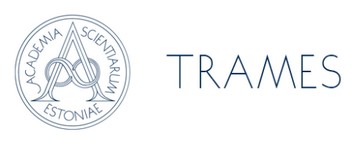DISAGREEMENT AND KNOWLEDGE: THE CASE OF PLATO’S ALCIBIADES
DISAGREEMENT AND KNOWLEDGE: THE CASE OF PLATO’S ALCIBIADES
Author(s): Toomas LottSubject(s): Epistemology, Ethics / Practical Philosophy, Ancient Philosphy, Theory of Literature
Published by: Teaduste Akadeemia Kirjastus
Keywords: ancient epistemology; social epistemology; disagreement;
Summary/Abstract: If there is widespread disagreement in an intellectual community, are its members in some sense failing epistemically? In this paper, I will offer a reconstruction of the first sustained attempt to answer this question. The attempt is made in the Alcibiades, a dialogue attributed to Plato. There, Socrates argues that the disagreeing parties lack knowledge. I will offer a reconstruction of this argument. Socrates relies on a controversial premiss according to which systematic and persistent disagreement within a group is an indication that its individual members lack knowledge. This claim rests on an optimistic assumption, explicit in the Alcibiades, that a person who possesses knowledge in a domain is able to persuade the audience and bring it to an agreement with the speaker. Knowledge, if present, spreads within the community unobstructed.
Journal: TRAMES
- Issue Year: XXIV/2020
- Issue No: 3
- Page Range: 403-421
- Page Count: 19
- Language: English

